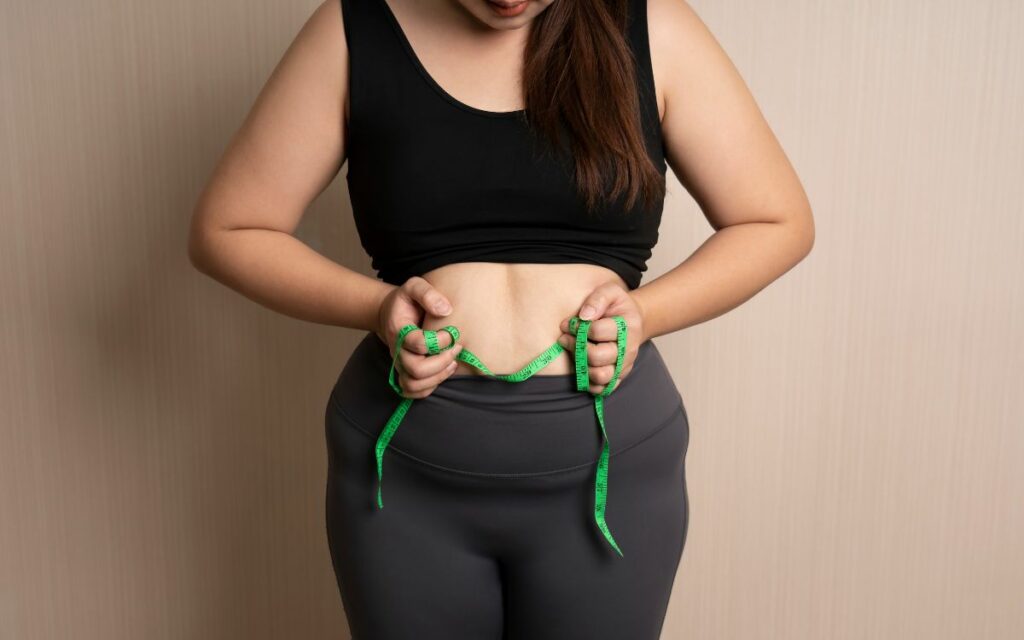
Gastric sleeve is one of the most popular weight-loss surgeries in the world. Its impressive success rate of about 80-90% makes it that popular. That means that 9 out of 10 patients who undergo the procedure manage to lose up to 60lbs of excess weight within the first year.
But there’re two key questions someone who’s about to go through this procedure will ask themselves. One, will the stomach be able to stretch back? And why should you even be worried about it?
Dive in to get the answers.

Gastric sleeve surgery is a form of bariatric surgery where a portion of the stomach is cut away, leaving behind a tube-shaped smaller stomach known as the sleeve. Typically, about 80% of the original stomach is cut away.
This procedure alters how quickly you get satisfied with food and how quickly you get hungry. These changes come by due to the smaller stomach size and hormonal changes that occur after gastric sleeve surgery.
Thus, you eat less food, which allows you to lose more weight.
As you eat, the stomach stretches to accommodate more volume. The stomach walls are made up of folds of tissue called “Rugae” that allow for its expansion and contraction.
Obesity comes in when the stomach no longer tells the brain it’s full or empty, at the right capacity. Normally, as you take in food and the stomach stretches to a far enough point, it signals the brain it’s full, and you stop eating.
As the food gets digested by the stomach acid and pushed into the intestines, the stomach shrinks back to its normal size. At a certain point, it triggers the brain it’s running empty, and you start feeding again.
If you constantly overfeed, which overstretches your stomach, it will start sending skewed signals to the brain. You will only feel full when the stomach has been severely stretched and hungry when it’s probably half-full.
Such skewed signals make losing weight rather difficult.

This is still a hotly debated topic within the scientific community. Some pieces of evidence point to the stomach being able to stretch permanently. These slight, permanent stretches are perfectly normal.
However, permanent stretching should take place over a couple of years. The current evidence suggests that this happens as you ingest more food, especially when trying to hit certain protein goals.
Despite it being normal for the stomach to stretch, you still have a huge role to play in how much it actually stretches.
What you should be worried about is your stomach stretching too much. After a gastric sleeve surgery, your stomach is far much smaller than it used to. It can, therefore, no longer hold as much food as before. Your goal now should be to eat until you are satisfied, not until you’re full.
After your gastric sleeve surgery, keep your stomach away from the overeating cycle that leads to a stretched stomach and, consequently, weight gain problems. That means that after binging on KFC for a night, switch to lighter meals the following few days.
Eating one or two large meals once in a while will not lead to any issues.
Your aim should be to keep the triggers of hunger and fullness in check by limiting how far your stomach is stretched.
You can do the following to keep a clean routine.
It is best to drink fluids an hour or two before eating and/or an hour or two after. This routine allows your stomach to digest the fluids, reducing the amount of gas that will build up in the stomach.
Moreover, the fluids will not take up the space of nutrient-dense foods, which will compromise your diet or force you to overfeed.
It’s okay to have questions about your life after gastric sleeve surgery. You should expect major lifestyle changes that will require a lot of commitment to achieve the best results. So, make sure you’re in touch with a professional surgeon who’ll advise on the dos and don’ts after the surgery.
Copyright © 2023 Renew Bariatrics, Inc.
“Individual results are not guaranteed and may vary, please refer to our disclaimer page. This content is not intended to be a substitute for professional medical advice, diagnosis, or treatment. Always seek the advice of your physician or another qualified health provider.”
“Renew Bariatrics, Inc. is a medical tourism scheduling facilitator, not a healthcare provider.”